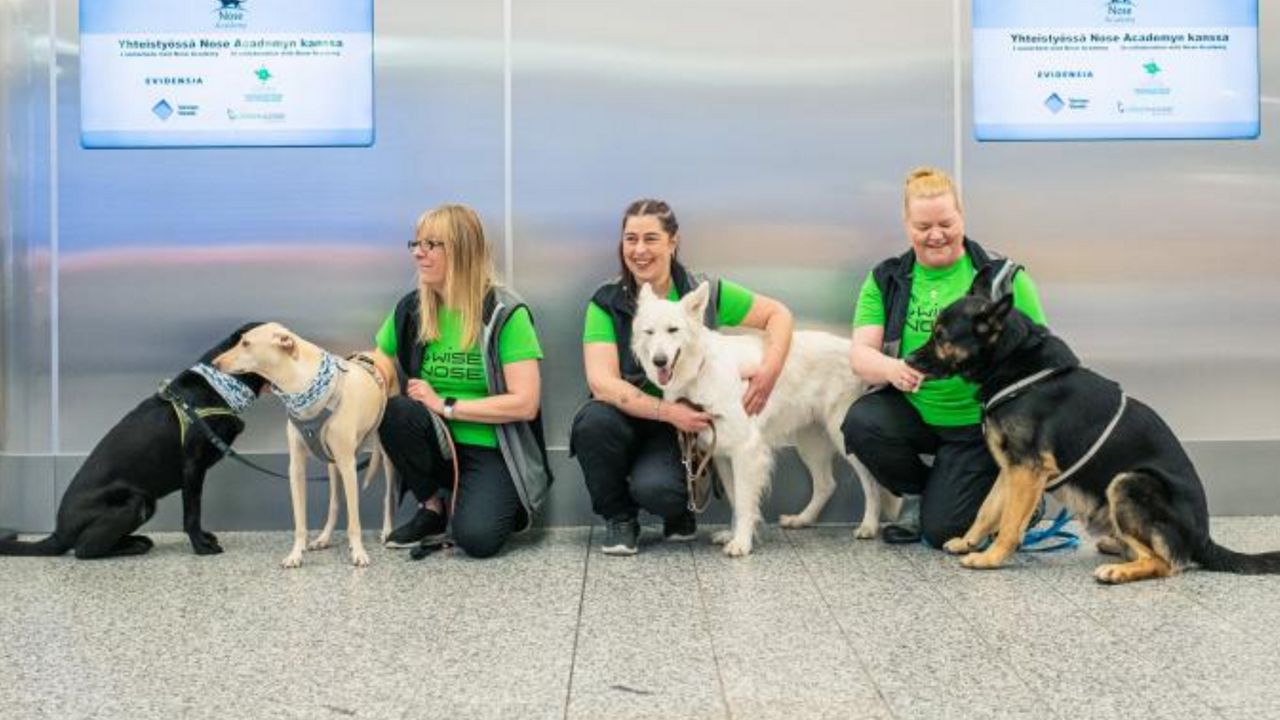HELSINKI — Dogs trained to detect the scent of coronavirus in humans have been deployed at Finland’s main airport Finavia as part of a four month trial that could change how the country identifies infected travelers.
ET, Kossi, Miina and Valo — the four dogs of different breeds participating in the trial — began their work at Helsinki’s airport on Tuesday.
“We are among the pioneers. As far as we know no other airport has attempted to use canine scent detection on such a large scale against COVID-19,” Finavia Airport Director Ulla Lettijeff said in a statement. “We are pleased with the city of Vantaa’s initiative. This might be an additional step forward on the way to beating COVID-19.”
Currently, the program is voluntary and targets mostly international travelers. Passengers who agree to take a free test under the voluntary program in Helsinki do not have direct physical contact with a dog.
They are asked to swipe their skin with a wipe which is then put into a jar and given to a dog waiting in a separate booth. The participating animals previously underwent training to detect cancer, diabetes or other diseases.
It takes the dog a mere 10 seconds to sniff the virus samples before it gives the test result by scratching a paw, laying down, barking or otherwise making its conclusion known. The process should be completed within minutes, according to the airport’s press release.
If the result is positive, the passenger is urged to take a standard polymerase chain reaction, or PCR, coronavirus test, to check the dog’s accuracy.
According to recent tests conducted by the Veterinary Faculty of the University of Helsinki, dogs are able to detect the virus with almost 100 percent certainty—even days before a person has begun to exhibit symptoms. Research also indicates that dogs require a much smaller sample size to sniff out the virus than the typical test conducted by health care professionals.
The dogs at Helsinki’s airport are being trained by Finland’s Smell Detection Association, also known as Wise Nose. The four sniffer dogs are set to work at the airport in shifts, with two on duty at a time while the other two get a break. A total of ten dogs are being trained for the job.
“Dogs need to rest from time to time. If the scent is easy, it doesn’t wear out the dog too much. But if there are lots of new scents around, dogs do get tired easier,“ said Anette Kare of Wise Nose.
Timo Aronkyto, the deputy mayor of Vantaa, the capital region city where the airport is located, said the program is costing the equivalent of $350,000—an amount he called “remarkably lower” than for other methods of mass testing arriving passengers.
While researchers in several countries, including Australia, France, Germany and the United States, are also studying canines as coronavirus detectors, the Finnish trial is among the largest so far.
The Associated Press contributed to this report.
